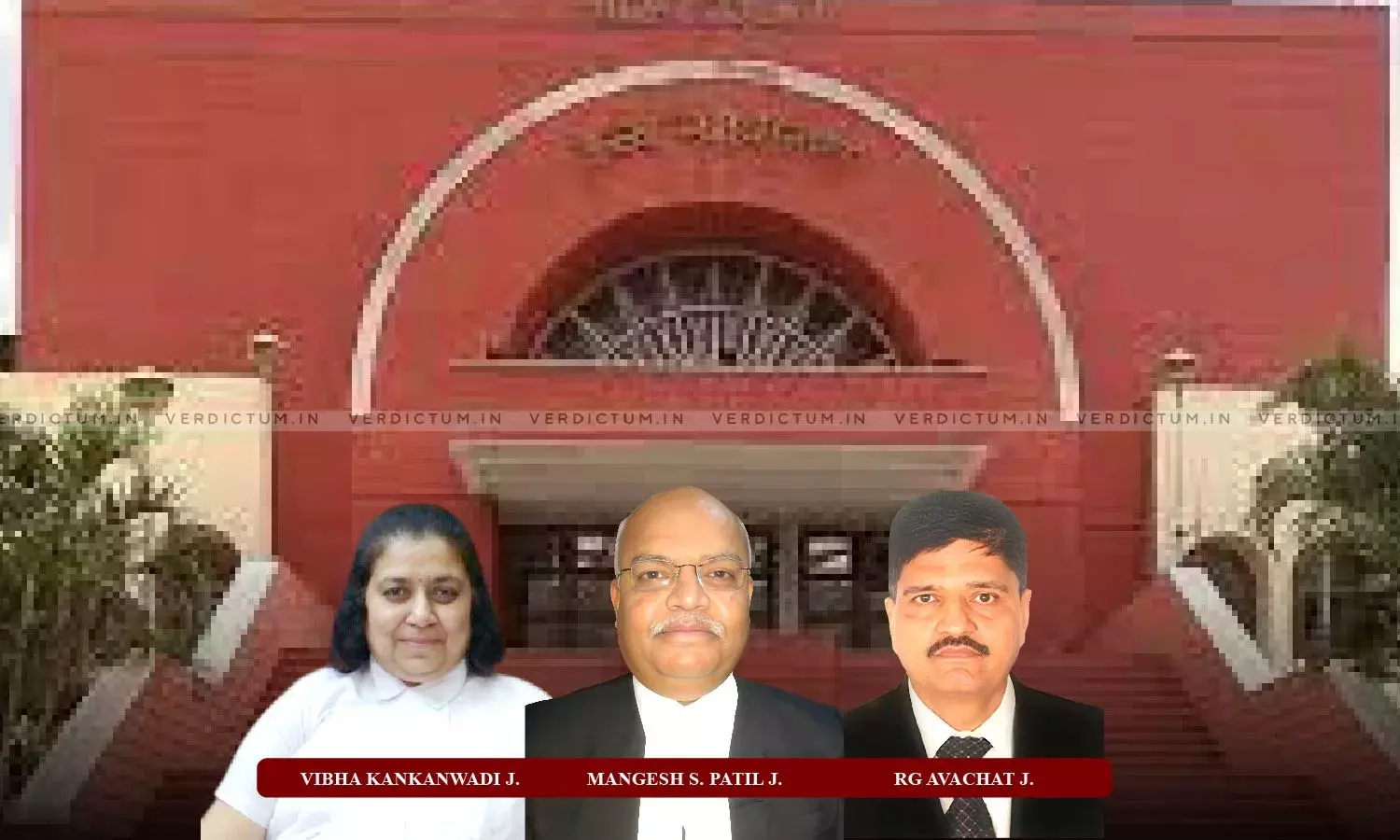In A Case Involving Offences Under Both SC/ST Act & POCSO Act, Victim Does Not Have Right To Prefer Appeal U/S. 14-A Of SC/ST Act: Bombay HC

The Bombay High Court held that in a case involving offences under both Scheduled Castes and Scheduled Tribes (Prevention of Atrocities) Act, 1989 (SC/ST Act) and the Protection of Children from Sexual Offences Act, 2012 (POCSO Act), a victim does not have a right to prefer an appeal under Section 14-A of the SC/ST Act.
A Full Bench comprising Justice Mangesh S. Patil, Justice Vibha Kankanwadi, and Justice R.G. Avachat , answering a reference, observed, “… in a case involving offences under both, the Scheduled Castes and Scheduled Tribes (Prevention of Atrocities) Act, 1989 and the Protection of Children from Sexual Offences Act, a victim thereof does not have a right to prefer appeal under Section 14-A of the Scheduled Castes and Scheduled Tribes (Prevention of Atrocities) Act, 1989. … Such interpretation is sustainable.”
Advocate Rashmi S. Kulkarni represented the applicant while Public Prosecutor A.B. Girase and Advocate Sangita Sambre represented the respondents.
Brief Facts -
A crime was registered against the applicant/accused for offences punishable under Sections 363, 376, and 376(3) of the Indian Penal Code (IPC) and Sections 3 and 4 of POCSO Act. Later, Section 3 of SC/ST Act was additionally invoked and his application under Section 438 of the Criminal Procedure Code (CrPC) was turned down by the Additional Sessions Judge. He, therefore, preferred an application under Section 438 CrPC to the High Court and while hearing the application, the informant i.e., the mother of the victim raised an objection as to the maintainability of the same. Hence, the Single Judge referred the matter to the Full Bench.
Therefore, the following issues arose before the Court for deciding the matter:
(i) Whether interpretation that Section 42-A of POCSO Act shall prevail over Section 14-A of Atrocities Act, in the matter of grant or refusal of bail, would result into abrogating right of victim, to prefer an appeal under Section 14-A of Atrocities Act against grant of bail to accused?
(ii) Whether such interpretation is sustainable having regard to intention of legislature in providing participation of victim and witness of atrocities at all stages of proceedings under Atrocities Act, with specific provision of Section 14-A thereof?
The High Court in view of the aforesaid issues noted, “We find provisions of Section 14-A to be para materia with Section 34 of the Prevention of Terrorism Act, 2002 (since repealed) and Section 21 of the National Investigation Agency Act, 2008. Needless to mention, sub-section (2) above does not confer a victim with a right to prefer appeal against an order granting bail. … We fail to understand as to why the provision, “Notwithstanding anything contained in sub-section (3) of Section 378 of the Criminal Procedure Code, 1973” has been prefixed to the further provision of sub-section (2) of Section 14-A.”
The Court said that the provisions of CrPC are silent to provide remedy of appeal against an order granting or refusing bail.
“Even if we read the said provision to mean to have created a remedy of appeal against an order of a Special Court or Exclusive Special Court granting or refusing bail, the same will have to be interpreted to mean that the remedy of appeal is provided against such an order which is passed by the Special Court or Exclusive Special Court having jurisdiction to try offences only under the S.C. & S.T. Act and none other”, added the Court.
Furthermore, the Court said that in a case wherein the accused is charged with offences under both, SC/ST Act and POCSO Act, the jurisdiction to try the said offence would exclusively be with a Special Court constituted under Section 28 of the POCSO Act.
“Needless to mention, the POCSO Act does not provide a remedy of appeal against an order granting or refusing to grant bail by such a Court. It is reiterated that, no such appeal has been provided under Cr.P.C. as well”, also noted the Court.
The Court further observed that the provisions of the CrPC including the provisions as to bail and bonds shall apply to the proceedings before a Special Court inquiring into or trying an offence under the POCSO Act and under any other Statute including SC/ST Act.
“We do not propose to reproduce each and every Sections of Chapter XXXI. Suffice to say, except the proviso to Section 372, the relevant Section providing right of appeal speak of such a right to be exercised only by the convict or the prosecution agency, namely the State. A right accrued to the victim to prefer appeal in terms of the said proviso is supposed to be exercised against an order passed by the Court either acquitting the accused or convicting for a lesser offence and none others”, it clarified.
Accordingly, the High Court directed the registry to place the application before the Single Judge for deciding the case on its own merits.
Cause Title- Aniket v. State of Maharashtra & Anr. (Neutral Citation: 2023:BHC-AUG:26801)


